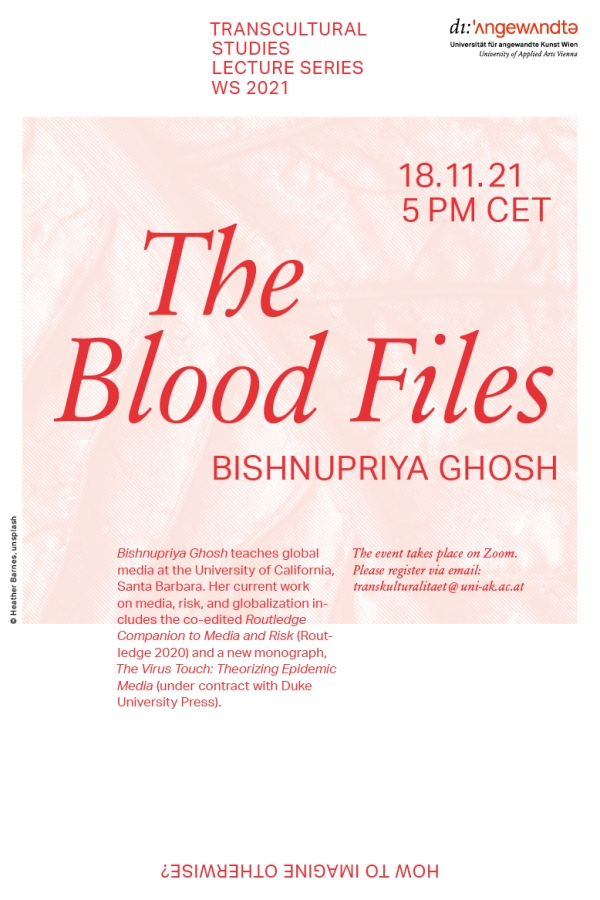Her research concerns the chronic blood surveillance in the HIV/AIDS post-antiretrovitral
era: blood samples and blood pictures sequenced in the blood files are essential for keeping abreast of infection. Ghosh stops
at three different settings where blood is denatured and fabricated as it moves through the vast global public health infrastructure.
One is the Center for AIDS Research biorepository in Seattle and the others are two clinics, the Sanjeevani outfit (Mumbai)
and the "HIV Adherence Club" (Cape Town). Since "clinical translations" of blood produces very different compositions at these
sites, one might ask: How might transculturality inform our understanding of these forms? Where do the processes of clinical
translation and transculturation intersect?
Tracking this highly symbolic medium as it is denatured and fabricated
requires close attention to the different processes of “clinical translation” that construct blood differently at each site.
Ghosh’s critical method probes what technical-aesthetic compositions of this vital medium might imply for the ecological study
of human and non-human relations. What does blood rife with biotic and chemical agents tell us about our “emerging with” the
environment? How does transculturality as a conceptual framework enable such an ecological orientation open to unthinking
anthropomorphism?
Bishnupriya Ghosh teaches global media at the University of California,
Santa Barbara. Her current work on media, risk, and globalization includes the co-edited Routledge Companion to Media and
Risk (Routledge 2020) and a new monograph, The Virus Touch: Theorizing Epidemic Media (under contract with Duke University
Press).Please register via transkulturalitaet@uni-ak.ac.at.Die öffentlich zugänglichen Vorträge der Ringvorlesung besprechen Ansätze und Kritik im Feld der Transkulturellen
Studien. Die vier miteinander verflochtenen Stränge Ökologie, Ökonomien, Geschichte des europäischen Imperialismus und Kolonialismus
sowie Praktiken der Kritik und des Widerstands in Bild, Ton, Text und Übersetzungsprozessen, welche im Sommersemester 2021
eingeführt wurden, werden weiterverfolgt und vertieft.
In den Gastvorträgen wird es auch darum gehen, scheinbar
disparate Disziplinen und Kulturen des Wissens und Lernens zusammenzudenken. Sie werden von Ökologie und emanzipativer Pädagogik,
von Umweltgeschichte und Faschismus, Sound(produktion) und postkoloniale Theorie, sowie kritischer Infrastrukturforschung
handeln.
Wir bitten wir um Anmeldung unter transkulturalitaet@uni-ak.ac.at.
Bei jenen Vorträgen, die als Präsenzveranstaltung stattfinden, gilt außerdem die Einhaltung der FFP2-Maskenpflicht sowie der
Abstands- und 2G-Regelungen.



